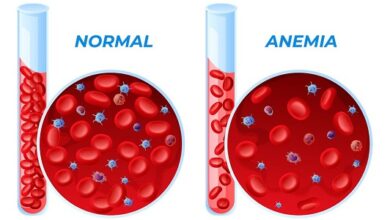Natural gas vs propane gas Similarities and FAQs
Natural gas vs Propane gas
In this article we will provide you the information about the Natural gas vs propane gas Similarities and FAQs.
What does natural gas mean
Natural gas is a fossil fuel, composed mainly of methane (CH4), although it also contains variable amounts of other hydrocarbons such as ethane, propane and butane. It is found inside oil wells, along with crude oil. This mixture is called “oil-gas.” Natural gas is produced when the appropriate pressure and temperatures allow the evaporated liquid to pass into its gaseous state. They are generally transported by pipeline for final use or refining. Due to recent technological advancement there are many different ways in which this fuel can be used: from generating electricity to domestic and industrial heating; Furthermore, its low polluting rates make natural gas an excellent sustainable energy alternative.
What does propane gas mean?
Propane gas is a fossil fuel obtained from the processing of oil or natural gas. It is a gas mixture composed mainly of isobutane and propane, with some variable amounts of other hydrocarbons. These components are responsible for the characteristic pungent odor and colorless color of the gas. Propane is widely used as a fuel for heating buildings, indoor or outdoor cooking, water heating, and as an industrial raw material . In addition, it can also be used as a coolant and even to generate electricity using special motors designed for this purpose.
Similarities
Both substances , natural gas and propane gas, are combustible gases that serve as a source of energy. Both are used in many industrial processes, as well as for home use. They are extracted from the ground by drilling to generate electricity or heat. The main differences between the two are in their chemical compositions: natural gas is a mixture of methane and other hydrocarbons while propane gas is a pure methane compound made up of only 3 carbon atoms. A distinctive feature to note is that both gases do not contain oxygen and therefore must be mixed with air before being ignited to produce complete combustion.
Differences
Natural gas is a fuel gas composed mainly of methane. It is produced from the decomposition of organic matter under special geological conditions such as in aquifers or sedimentary layers, and is extracted from the subsoil through wells. It is generally colorless and odorless, but may contain other associated gases such as ethane, propane or other heavier hydrocarbons. Propane gas , on the other hand, is a liquefied petroleum gas that contains much less methane and a greater amount of ethylene than Natural Gas. It is composed only of 3-4 simple hydrocarbons (mainly propylene). Propane gas is obtained during the processing of crude oil to separate the light components of the volatile alkyl group: Methanol, Ethanol and Propylene (among others).
Frequent questions
What is natural gas and what is it for?
Natural gas is a mixture of gases composed mainly of methane. It is extracted from wells and stored in underground tanks, where it can be used as fuel for the generation of electricity and heat, allowing its use in homes, industries and power plants. It is also used for various commercial and industrial applications such as welding, fertilizer manufacturing and chemical processing. Natural gas is also known for its environmentally friendly properties since it produces lower polluting emissions when burned compared to other fossil fuels.
What is natural gas called now?
Natural gas is now known as “liquefied natural gas” or LPG.
What is natural gas and where does it come from?
Natural gas is a fuel composed mainly of methane (CH4) and other hydrocarbons, such as ethane (C2H6), propane (C3H8) and butane (C4H10). It is extracted from oil wells or geological deposits.
Where is natural gas generated?
Natural gas is mainly produced from underground hydrocarbon deposits, although it can also come from certain biological sources. The general process for natural gas production involves the extraction of crude oil and associated gas from wells. Once extracted, the liquids are separated from the gas in a separation facility located on land or on offshore platforms.
What is propane gas and what is it for?
Propane gas is a fuel obtained from the distillation of petroleum and is used to power ovens, stoves, water heaters and other household equipment. It is also used in commercial refrigeration systems, for cooking food on grills or barbecues outdoors, and even for lighting large outdoor areas.
What is the difference between natural gas and propane gas?
The main difference between natural gas and propane gas is that natural gas is obtained from petroleum or coal, while propane gas is obtained from a distillation of liquid petroleum products. Natural gas is typically cheaper than propane, but it also tends to be less efficient for energy production. Additionally, due to their different chemical composition, there are big differences in how they react to storage and use.
Which is better butane or propane?
There is no definitive answer to this question, as it depends on your specific needs. Butane and propane are fuel gases used in applications such as water heaters, cooking, heating and cooling. Both can be used in many similar situations, but each has its advantages and disadvantages. For example, butane has a lower flash point so it is less dangerous; however, its energy content per volume is lower than that of propane. On the other hand, propane stores more energy per volume than butane; However, it requires greater conditions to turn it on.
What is propane gas?
Propane gas is a fuel of fossil origin that is obtained from the processing of oil and/or natural gas. It is commonly used in heaters, stoves, cookers and other household applications for both residential and commercial uses. It is a reliable and economical source of energy for many homes and businesses.




